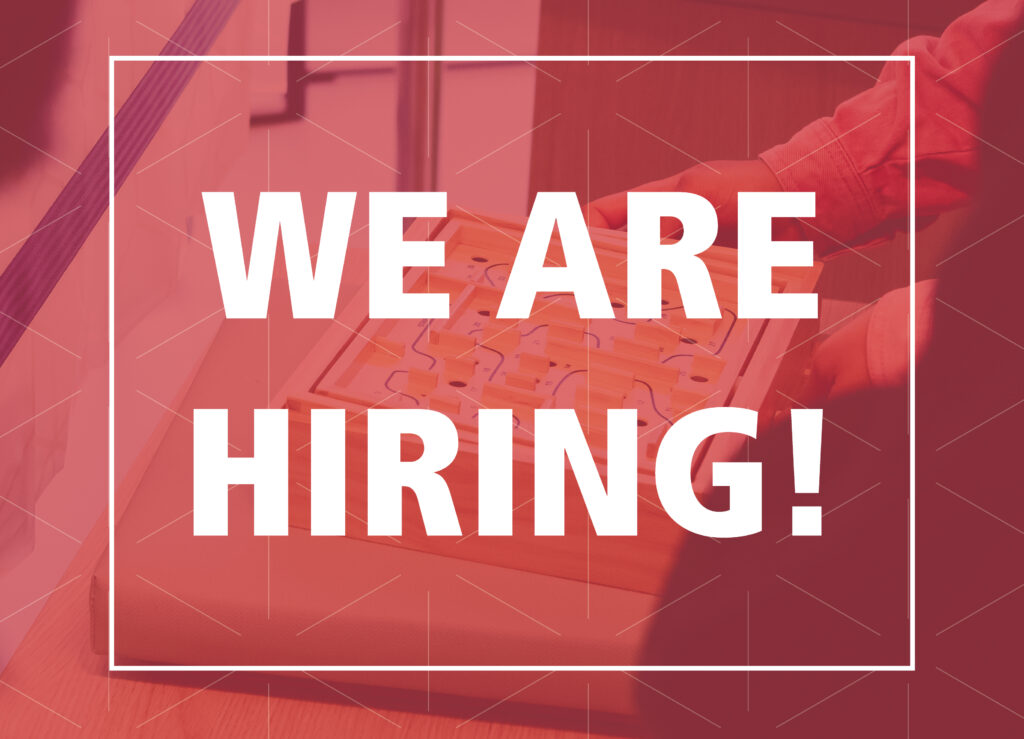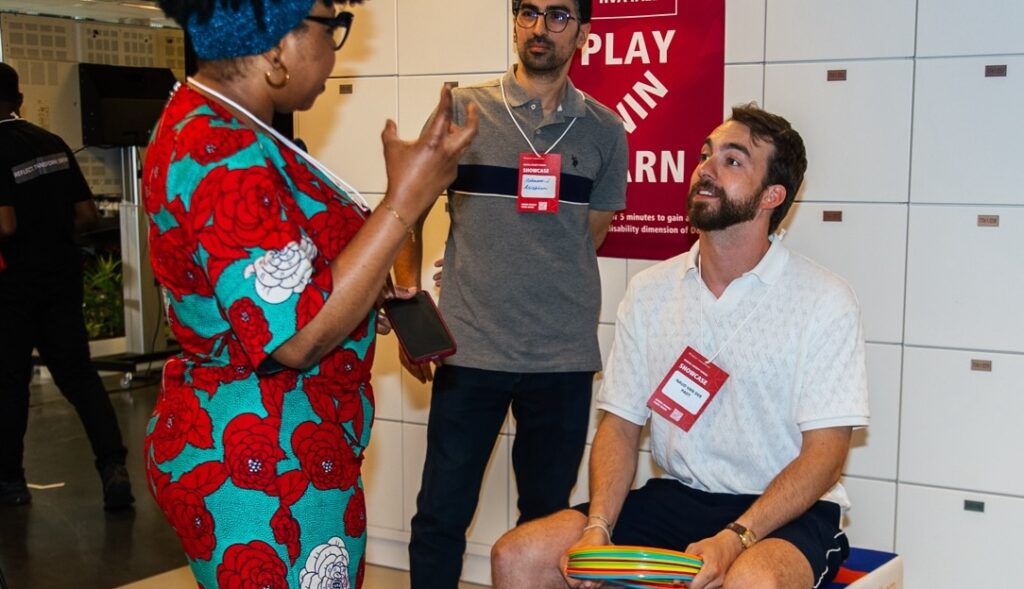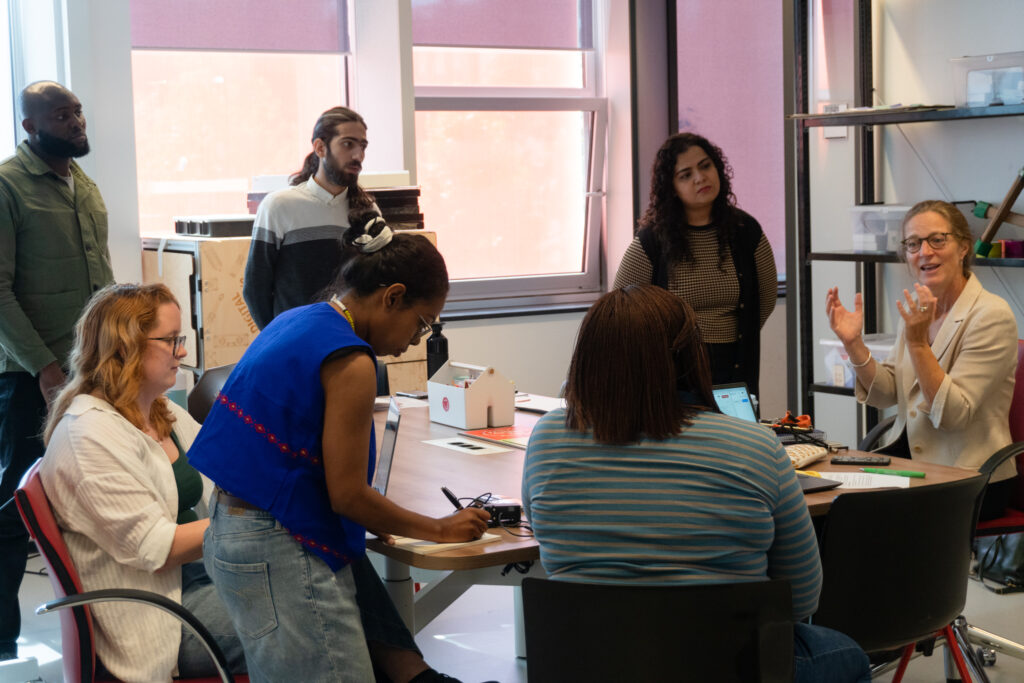Article
DW 2023: Diverse faces of DTIP – Utkarsh
“Someone said that if you’re designing something, it’s user experience. But if you’re designing for some group of people and not all, it’s only some user experience. That’s why I think it’s important to take everyone into account when creating a design or a solution so that no one feels left out.” – shares Utkarsh, a trainee in our Fall semester of the Digital Transformation Intensive Programme. He joined the traineeship in September, together with other 37 talented individuals from all around the world, and is now in the process of working on a challenge in a team of 5.
Consisting of different nationalities, age groups, educational backgrounds and levels of expertise, this mix of young professionals creates a unique multidisciplinary and multicultural setting. In fact, this is exactly what makes the programme so special. It guarantees that the problems presented by our partners are looked at from various perspectives and contributes to developing truly inclusive solutions for the future.
In light of Diversity Week 2023, we decided to sit down with some trainees from the DTIP. Together, we explore their experiences of working in such a multicultural environment as DSS and their vision of diversity and inclusivity in more detail.
Could you tell me a bit about your background and where you come from?
My name is Utkarsh. I am originally from India and I have been living in Amsterdam for about 2,5 years now. I came here to do my master’s at the MDD (Master in Digital Design at HvA) upstairs and then since I graduated I have been working as a freelance UX/UI designer. I’m quite interested in diversity and inclusion, and even while I’m designing, I’m trying to include stuff like that. While studying, we had a track called Design Ethics, which was a little bit about diversity, accessibility and inclusion, and that really sparked my interest. That’s how I knew that I wanted to do a little bit of this, which is not very easy, to be honest. If I’m taking on projects, I can tell the client about it, but it’s not like they want to follow it because no one keeps that as a priority.
And why did you decide to join DSS?
Because I wanted to get a deeper understanding of how things work, specifically in an agile environment. I have been interviewing with companies over the past few months, and everyone asked me about my professional experience. So, I wanted to get a deeper understanding of how things work in Agile and Scrum. At the MDD, it was very much focused on design and research and all of those things. But I really wanted to get a little bit of that hands-on practical experience as well. In five months, I can get a lot of information.
Now you’re working in a pretty diverse team, I suppose. What is your experience so far? Maybe you can share the advantages and some challenges?
You get ideas from different perspectives and diverse perspectives lead to better decision-making because there is like more holistic approach to a decision. Also, people challenge each other in a more diverse team. I try to encourage everyone to speak up and also listen to everyone without blocking them out. Sometimes even a small sentence could be really a Eureka moment or whatever.
When it comes to challenges, I think everyone is used to working differently. For example, time management is definitely sometimes an issue. I do think now it’s kind of OK and DSS helped with that during the first week as well. Another challenge could be if you don’t understand how the other person is speaking. I always like to clarify because people from different parts pronounce words differently, which could mean something else in other languages.
You mentioned that you would like to contribute to more inclusivity within the design and technology. How can we become more inclusive through our practices in general?
I think change starts at a very individual level. Personally, being a person of colour, I think I do not try to be too much. I never really think that I’m someone who’s a bit different. Still, I also try to empathise a lot with people. Even if I would face discrimination, I would not really immediately judge people. I would try to understand where they’re coming from or maybe they don’t know better in a way. Maybe, there is a space for them to be educated a little bit about that, or at least put my opinion forward. And yeah, I think empathising is really what I’m learning in my life.
I try to consider everyone equal and it doesn’t matter what colour they are or what gender. It’s more for me about just seeing people as people, you know.


